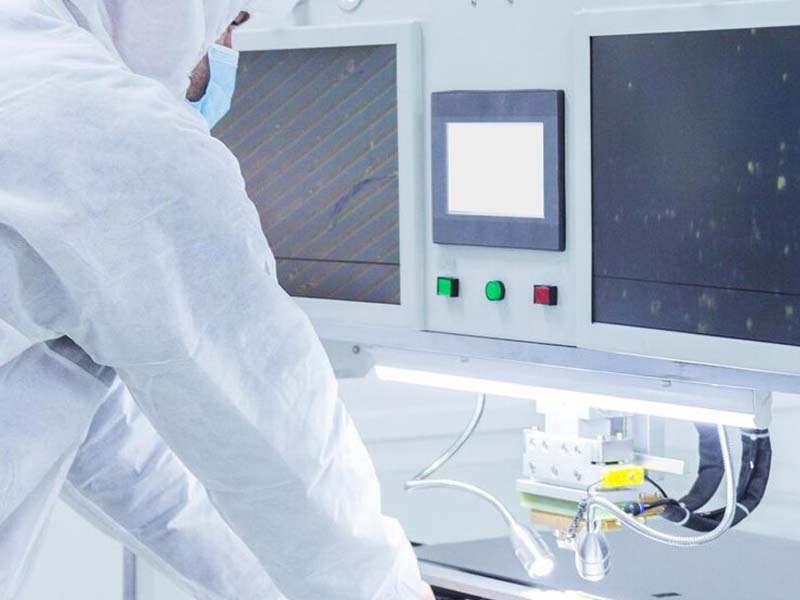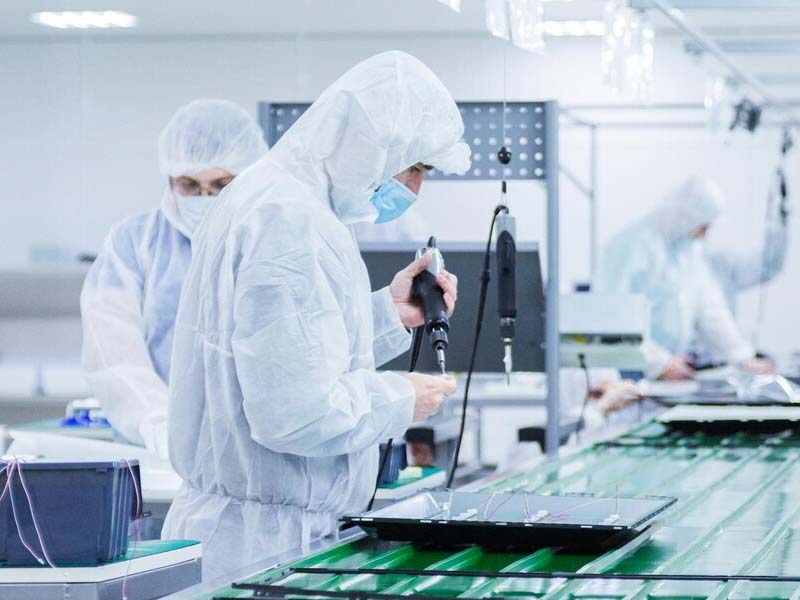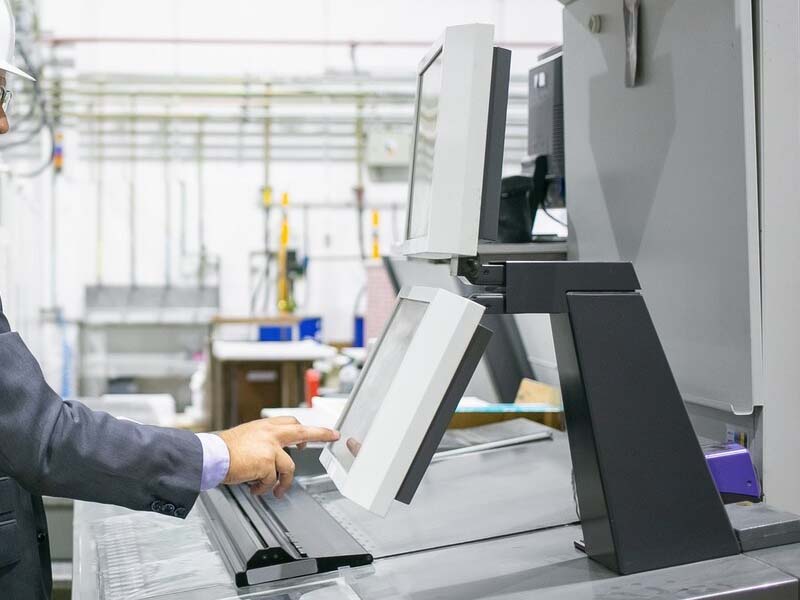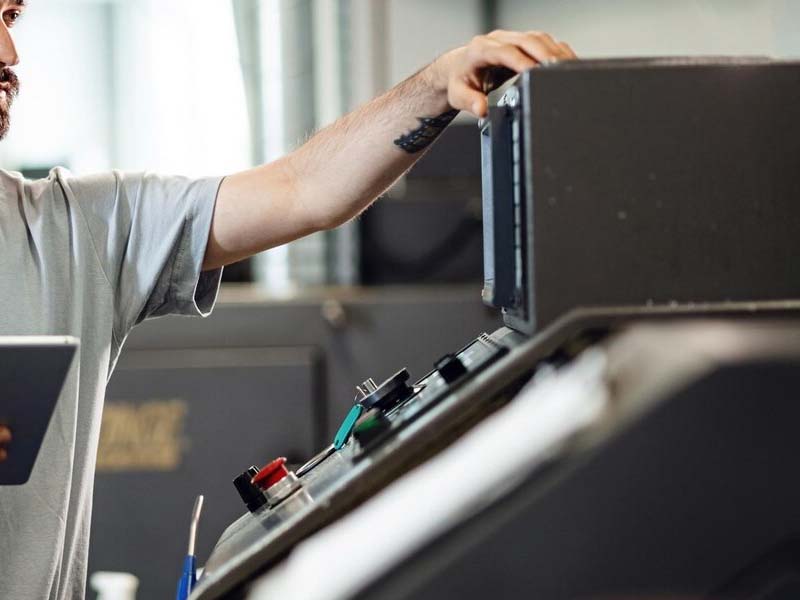Rugged box PCs, also known as industrial box computers or ruggedized computers, are specialized computing devices designed to withstand extreme conditions and harsh environments. Unlike traditional desktop PCs or laptops, rugged box PCs can handle vibrations, shocks, temperature fluctuations, dust, moisture, and even electromagnetic interference due to their design.
These robust machines typically feature a compact form factor with a durable enclosure made of high-quality materials such as aluminum or stainless steel. Reinforced connectors and ports equip them to guarantee reliable connectivity in demanding industrial settings.
What sets rugged box PCs apart is their ability to function optimally in challenging environments where standard computers would falter. Whether it’s operating in an oil refinery exposed to corrosive chemicals or on a factory floor subjected to constant vibration from heavy machinery, these devices provide uninterrupted performance.
In addition to their physical durability, Industrial box PCs boast impressive processing power and advanced features tailored for industrial applications. They can support multiple displays for enhanced visualization and offer ample storage capacity for data-intensive tasks. Some models even come equipped with fanless cooling systems that prevent the buildup of debris while reducing maintenance requirements.
The defining characteristic of rugged box PCs is their unwavering reliability under adverse conditions – making them an indispensable tool for modern industrial operations seeking seamless functionality in challenging environments.

Understanding Rugged Box PCs
Rugged box PCs are robust, purpose-built computing devices designed to thrive in demanding industrial environments. Their unique characteristics and resilience make them indispensable tools in various industries.
What Are Rugged Box PCs?
Specialized engineers design rugged box PCs to withstand extreme conditions that would pose challenges to standard computers.Their key features include durable construction, resistance to environmental factors like temperature extremes, dust, moisture, and vibrations, and adaptability to specific industry requirements.
Key Features for Demanding Environments
Rugged box PCs excel in challenging settings. They can handle extreme temperatures without overheating, resist dust and moisture ingress, and endure relentless vibrations without compromising performance. Their fanless design and solid-state drives ensure reliability in harsh conditions.
Industries That Benefit
Rugged box PCs find applications in diverse industries, from manufacturing and agriculture to oil and gas, healthcare, and transportation. They provide the backbone for seamless operations in these sectors, ensuring uninterrupted data management and efficiency.
In the ever-evolving world of industrial operations, rugged box PCs are the unsung heroes, offering durability, reliability, and adaptability. Their capacity to perform various roles and adapt to industry-specific needs makes them vital assets in dynamic environments.

Benefits of Rugged Box PCs in Industrial Operations
Enhanced Durability: Tackling Environmental Challenges
In the world of industrial operations, where chaos often reigns, durability is the name of the game. Rugged box PCs are the champions here, shrugging off the harshest of environmental challenges. Whether it’s scorching heat, bone-chilling cold, a deluge of moisture, or relentless vibrations, these robust computers stand tall.
Extreme Temperatures
Extreme temperatures can wreak havoc on standard computers. When the mercury rises to scorching levels or plummets to bone-chilling depths, regular PCs often succumb to overheating or freezing. These temperature extremes can lead to system failures and costly downtime in industrial settings.
Rugged box PCs, on the other hand, have been designed for reliable operation across a wide temperature range. They have specialized cooling systems and components that can handle the stress of temperature fluctuations without breaking a sweat. This means they can keep functioning seamlessly in environments that would be a nightmare for conventional computers.
Dust and Moisture
Dust and moisture are like silent assassins in the industrial world, creeping into sensitive electronic components and causing havoc. Dust, in particular, can clog fans and heat sinks, leading to overheating and reduced performance. Moisture, on the other hand, can infiltrate circuitry, causing short circuits and corrosion.
Rugged box PCs combat these environmental challenges with sealed enclosures and protective measures. These robust machines can resist dust ingress and are often rated with an Ingress Protection (IP) code, ensuring they can withstand moisture and even water splashes. They create a protective barrier, shielding the vital electronics from the elements and guaranteeing consistent operation.
Relentless Vibrations
In industrial settings, machinery and equipment often generate relentless vibrations. These vibrations can be destructive for regular computers, potentially causing loose connections, data corruption, or component failures.
Rugged box PCs are built to handle these vibrations with grace. Their construction includes shock-resistant mounting and solid-state drives, which can absorb the shocks and vibrations without affecting the internal components. This means they can continue to operate smoothly even in environments where vibrations are a constant presence.
Reliability and Longevity: The Backbone of Industrial Processes
When it comes to industrial operations, reliability is not just a luxury; it’s a necessity. The importance of reliable hardware cannot be emphasized enough, as even a minor glitch or downtime can result in significant financial losses and operational setbacks. This is where rugged box PCs step into the limelight.
The Crucial Role of Reliability in Industrial Processes
Industrial processes are often mission-critical. In manufacturing, for example, any interruption in the production line can result in wasted materials and lost revenue. In healthcare, disruptions in medical equipment can jeopardize patient safety. In transportation and logistics, any system failure can lead to costly delays and logistical nightmares.
Reliable hardware forms the foundation of these processes, ensuring that operations run smoothly, efficiently, and without hiccups. Any downtime or malfunction can have cascading effects, leading to loss of productivity, increased maintenance costs, and potential safety risks.
Rugged Box PCs: The Epitome of Reliability
Rugged box PCs are not just reliable; they outperform traditional computers in industrial settings. Here’s how:
- Industrial-Grade Components: Rugged box PCs are equipped with industrial-grade components, purpose-built to withstand the rigors of continuous operation. These components are selected for their durability, reliability, and longevity. Unlike standard computers, which use consumer-grade parts, rugged box PCs are designed to withstand the harsh conditions of the industrial environment.
- Advanced Thermal Management: Overheating can be a major issue for standard computers in industrial settings. However, industrial box PCs are engineered with advanced thermal management systems. They can efficiently dissipate heat and maintain optimal operating temperatures, even in challenging conditions. This ensures that the components remain within safe temperature ranges, preventing overheating-related failures.
- Solid-State Drives (SSDs): Rugged box PCs often feature SSDs instead of traditional hard drives. SSDs have no moving parts, making them more durable and shock-resistant. They can withstand the constant vibrations and shocks that are common in industrial environments, ensuring data integrity and preventing drive failures.
- Fanless Design: Traditional computers often rely on fans for cooling, which can be susceptible to dust and debris buildup. Rugged box PCs, in contrast, often feature fanless designs, eliminating this vulnerability. This means they require less maintenance and can operate reliably in dusty or dirty environments.
- Longevity: Rugged box PCs are built to last. They have a longer lifecycle compared to standard computers, which need more frequent upgrades and replacements. This longevity reduces the total cost of ownership and ensures that investments in computing infrastructure are sustainable over time.
Adaptability and Versatility: Rugged Box PCs as Multifaceted Tools
Box PCs are the Swiss Army knives of computing, offering adaptability and versatility that set them apart in industrial settings. Their flexibility allows them to thrive in various applications, from controlling production lines in manufacturing to data analysis in precision agriculture or patient data management in healthcare. They seamlessly switch roles, adapting to changing needs within a single organization.
What makes rugged box PCs truly remarkable is their capacity for customization. Industries often have unique demands, and rugged box PCs can be tailored to meet these specific requirements. Whether it’s adding more storage for data-heavy tasks or integrating specialized interfaces for machinery, box PCs can be configured to exact industry standards.
For example, in the oil and gas sector, companies can customize industrial box PCs to comply with safety regulations in explosive atmospheres. In transportation, they can withstand extreme temperatures and vibrations, ensuring reliability in rugged conditions. Rugged box PCs aren’t just computers; they are adaptable, versatile solutions that ensure industrial operations run smoothly, regardless of the industry’s ever-changing demands.

Reliability and Longevity
Reliability and longevity are two crucial factors to consider when it comes to choosing the right technology for industrial operations. In this regard, rugged box PCs excel in providing an exceptional level of durability and a long lifespan.
Engineers design these robust machines to endure harsh environments, including extreme temperatures, dust, moisture, vibrations, and even electromagnetic interference.With their solid construction and high-quality components, rugged box PCs ensure uninterrupted performance in demanding conditions.
Consumer-grade computers may experience failures or require frequent repairs when subjected to rough industrial settings, in contrast to rugged box PCs, which are purposefully designed for reliability. These devices undergo rigorous testing and comply with industry standards for shock resistance and other environmental factors.
Additionally, these devices have extended product lifecycles compared to commercial off-the-shelf (COTS) computers. This means that even if certain models become discontinued over time due to technological advancements or changes in market demand, manufacturers often provide long-term support by offering compatible replacement options or upgrades.
By investing in a rugged box PC with proven reliability and longevity features, industries can minimize downtime caused by equipment failures or system disruptions. This translates into increased productivity as well as cost savings from avoiding costly repairs or frequent replacements.
Real-World Applications
Rugged Box PCs have become an essential tool in a wide range of industrial operations. Their robust design and reliable performance make them suitable for use in various challenging environments. Let’s explore some real-world applications where these rugged computers are making a significant impact.
- Manufacturing: In the manufacturing sector, Rugged Box PCs play a vital role in process control, monitoring production lines, and managing inventory systems. These rugged computers can withstand harsh conditions such as extreme temperatures, vibrations, and dust exposure commonly found on factory floors.
- Transportation: Whether it’s railroads, ports, or logistics centers, the transportation industry heavily relies on Rugged Box PCs to ensure efficient operations. With their ability to handle shocks and vibrations that come with moving vehicles or heavy machinery, these rugged computers help monitor cargo tracking systems and manage fleet logistics effectively.
- Energy Sector: The energy sector encompasses power plants, oil refineries, wind farms – all of which require reliable computing solutions capable of operating under extreme conditions like high temperatures or volatile atmospheres. Rugged Box PCs provide robust computing power for data acquisition and control processes critical to maintaining uninterrupted energy supply.
- Mining: The mining industry demands durable equipment that can withstand rough terrains while providing accurate data analysis capabilities for optimal resource extraction. Rugged Box PCs excel in this environment by offering resistance against dust ingress and shock/vibration tolerance necessary for effective mine management.
- Outdoor Surveillance Systems: Security is paramount in today’s world across various sectors like public infrastructure development projects or remote surveillance stations protecting natural resources from illegal activities or environmental threats; therefore requiring dependable computing platforms – enter the Rugged Box PC!In conclusion (Not part of my answer), Rugged Box PCs find themselves at home within industries requiring powerful yet resilient computing solutions that can operate flawlessly amidst adverse conditions often encountered during industrial operations
Selecting the Right Rugged Box PC
When it comes to choosing a rugged box PC for your industrial operations, there are several factors to consider. First and foremost is the level of durability and protection that the device offers. Look for a rugged box PC that meets or exceeds industry standards for shock, vibration, temperature, and humidity resistance.
Another important consideration is processing power. Industrial operations often require robust computing capabilities to handle complex tasks and data-intensive applications. Make sure the rugged box PC you choose has sufficient processing power to meet your specific requirements.

In today’s interconnected world, connectivity options also play a crucial role. Look for a rugged box PC that offers a variety of connectivity options such as Ethernet ports, USB ports, serial ports, and wireless capabilities like Wi-Fi or Bluetooth.
Storage capacity is another key factor to consider. Industrial operations produce substantial data that requires secure storage. Ensure that the rugged box PC has ample storage space or supports expandable storage options like SSDs or hard drives.
Take into account the environment in which you plan to deploy the rugged box PC. If it will face exposure to extreme temperatures or harsh conditions, seek devices with wide operating temperature ranges and enclosures that have IP ratings for dust and moisture protection to enhance security.
Don’t forget about software compatibility and support services offered by the manufacturer. Ensure that the rugged box PC is compatible with your preferred operating system and any necessary software applications used in your industry.
Choosing the right rugged box PC requires careful evaluation of these factors along with considering other unique requirements specific to your industrial operations.
Conclusion
In today’s fast-paced and demanding industrial landscape, box PCs have become essential for modern operations. Designers have created these resilient computing devices to endure harsh environments and deliver reliable performance in the most challenging conditions.
The benefits of using rugged box PCs in industrial operations are undeniable. Their reliability and longevity ensure uninterrupted operation, minimizing downtime and costly repairs. These devices’ adaptability and versatility enable easy integration into existing systems, delivering seamless connectivity and enhanced efficiency.
Real-world applications highlight the wide range of industries that can benefit from rugged box PCs. From manufacturing plants to oil refineries, these powerful machines play a crucial role in optimizing processes, enhancing productivity, and ensuring smooth operations.
When selecting a rugged box PC for your specific needs, it is important to consider factors such as processing power, storage capacity, expansion options, connectivity interfaces, operating system compatibility, and certifications for industry-specific standards.
In conclusion (without explicitly stating it), choosing a high-quality rugged box PC can significantly enhance operational efficiency while reducing maintenance costs over time. Investing in this durable technology ensures that your industrial operations keep up with the demands of today’s rapidly evolving landscape.
So if you’re looking to take your industrial operations to new heights of reliability and performance.



